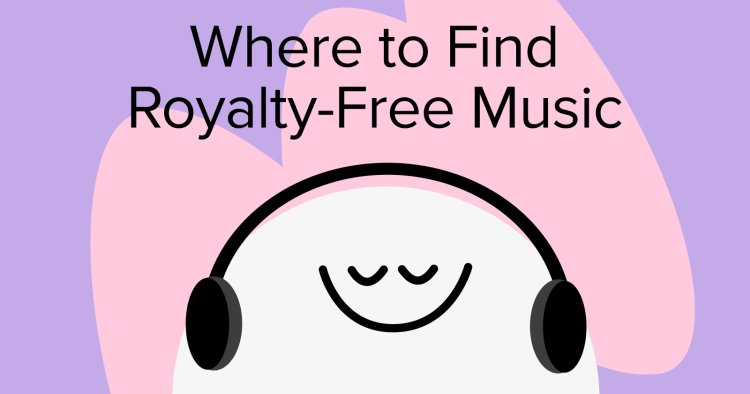The Role of Music in Podcasts: Why Royalty-Free Tracks Matter
The Role of Music in Podcasts: Why Royalty-Free Tracks Matter

Podcasts have become one of the most popular mediums for entertainment, education, and information sharing. With millions of podcasts available on platforms like Apple Podcasts, Spotify, and Google Podcasts, creators must find ways to stand out in an increasingly crowded space. One way to achieve this is by incorporating music into your podcast. Music not only sets the tone but also helps capture listeners’ attention, creating a more engaging and memorable experience. However, the use of music in podcasts comes with its own set of challenges, particularly when it comes to copyright laws. This is where royalty-free music becomes an essential tool for podcasters.
The Importance of Music in Podcasts
Music is a powerful tool in storytelling. It can enhance the emotional impact of your podcast, create a specific atmosphere, and even establish a brand identity for your show. Whether you're producing an interview-based podcast, storytelling podcast, or educational series, the right music can help anchor your content, making it feel more polished and professional.
Here are a few key reasons why music is crucial for podcasts:
-
Sets the Tone: The intro music of a podcast can immediately convey the show's mood. For instance, upbeat music may be fitting for a lively, fun podcast, while calm, ambient music is ideal for a more serious or reflective podcast. The music you choose helps signal to your audience what kind of experience they can expect.
-
Enhances Engagement: Music can help to keep listeners engaged, especially during transitions or pauses. A short musical interlude can break up lengthy monologues or signal a change in topics, giving your audience a moment to mentally reset.
-
Builds Brand Identity: Just like a visual logo, your podcast's music can become part of your brand. Consistent use of the same music in the intro and outro can make your podcast instantly recognizable. Over time, this association builds a stronger connection with your listeners.
-
Improves the Listening Experience: Silence in a podcast can sometimes feel awkward, particularly when transitioning between segments. Music smooths out these transitions, keeping the flow of the episode intact. A good musical backdrop ensures that listeners are consistently engaged and don’t lose focus.
The Challenge of Copyright in Music Use
While music is an invaluable addition to any podcast, it’s important to be aware of the legalities surrounding its use. Traditional copyrighted music cannot be used without proper licensing, as this can lead to copyright strikes, demonetization, or even legal action. This poses a significant challenge for podcasters who want to avoid these potential pitfalls while still creating high-quality content.
Many podcasters turn to royalty-free music as a solution. Royalty-free music provides an affordable and legal way to include music in your podcast without the risk of copyright infringement. When you use royalty-free tracks, you're granted permission to use the music without having to pay ongoing royalties or licensing fees.
Why Matters Royalty Free Music for Podcasters
-
Cost-Effective: Licensing popular music can be expensive, especially for smaller podcasters or those on a tight budget. Royalty-free music provides an affordable alternative, allowing you to access high-quality tracks at a reasonable price or even for free. Many platforms offer affordable subscriptions or pay-per-track pricing, making it easier for creators to stay within budget.
-
Legal Protection: One of the biggest concerns for podcasters is avoiding copyright infringement. Using royalty-free music ensures that you’re on solid legal ground. Many royalty-free music libraries provide clear usage rights, so you won’t need to worry about facing a copyright claim.
-
Variety and Choice: Royalty-free music libraries offer a wide variety of genres and moods. Whether you need cinematic orchestral music for a dramatic story or light, upbeat background music for a casual conversation, you can find a track that matches your podcast’s vibe. This flexibility allows podcasters to personalize their content and create a unique sound.
-
Time-Saving: Finding the right music for your podcast can take time, but using a royalty-free library streamlines the process. Many platforms offer search filters that help you find tracks based on mood, genre, or tempo. This means you can quickly locate the perfect music to complement your content and enhance your storytelling.
-
No Ongoing Costs: Once you've purchased a royalty-free track or subscribed to a royalty-free music service, you can use the music as often as you like without worrying about recurring fees. This is in contrast to traditional music licensing, where you might be required to pay each time you use a particular track.
Where to Find Royalty-Free Music
There are numerous platforms offering royalty-free music for podcasters. Some of the most popular options include:
- Epidemic Sound: A subscription-based service offering a vast library of royalty-free music and sound effects.
- AudioJungle: A marketplace where you can purchase individual royalty-free tracks for a one-time fee.
- Free Music Archive: A free resource for podcasters seeking music that can be used without copyright restrictions.
- Artlist: Known for high-quality, royalty-free music with a simple subscription model that grants you access to all tracks.
Conclusion
The role of music in podcasts is more than just an accessory; it is a powerful tool that can enhance the listener’s experience, set the tone, and help build a brand identity. By using royalty-free music, podcasters can create professional-quality content without the risk of copyright issues. With a wide variety of royalty-free tracks available, it’s easier than ever to find the perfect soundtrack to complement your podcast. Whether you’re just starting out or are an established podcaster, incorporating royalty-free music can help elevate your show and keep listeners coming back for more.
What's Your Reaction?

















.jpg)